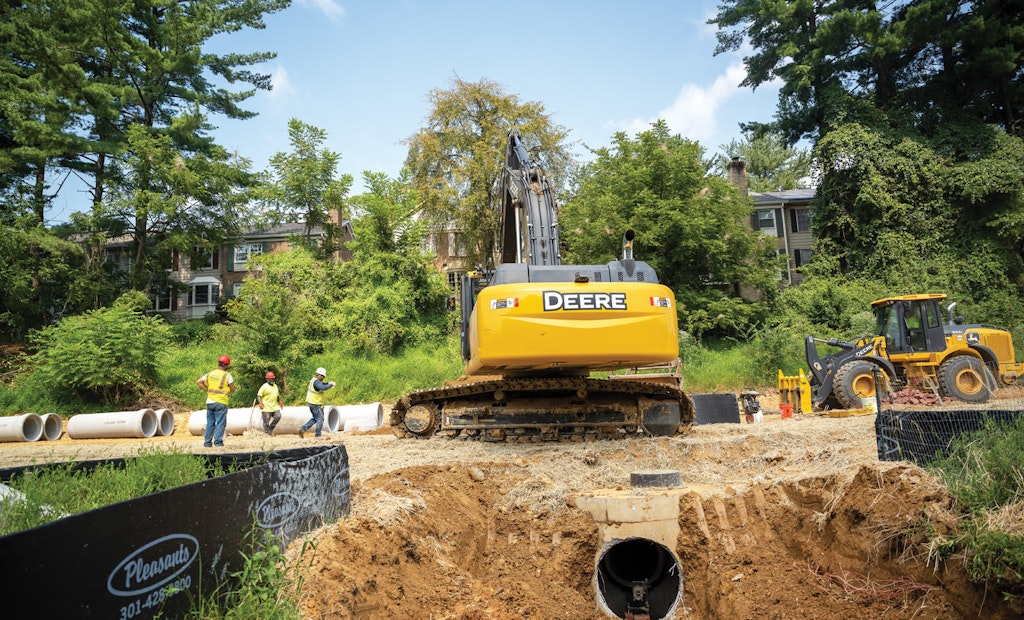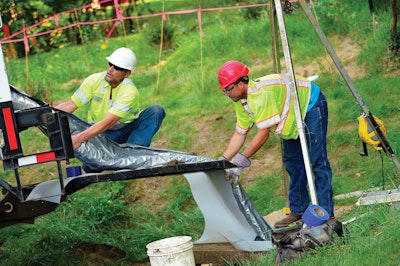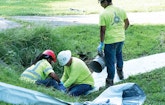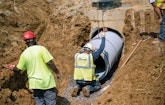
A crew from Maryland-based Pleasants Construction installs a storm drain under a roadway in rural Maryland.
Started by Bill Pleasants in 1964 with a truck and front-end loader, Pleasants Construction has expanded into one of the largest utility, land development, waste management and trenchless rehabilitation contracting firms in the Washington, D.C., metro area.
Today, the company is...










